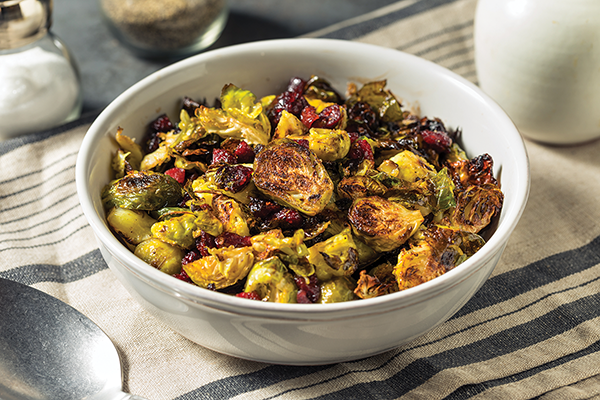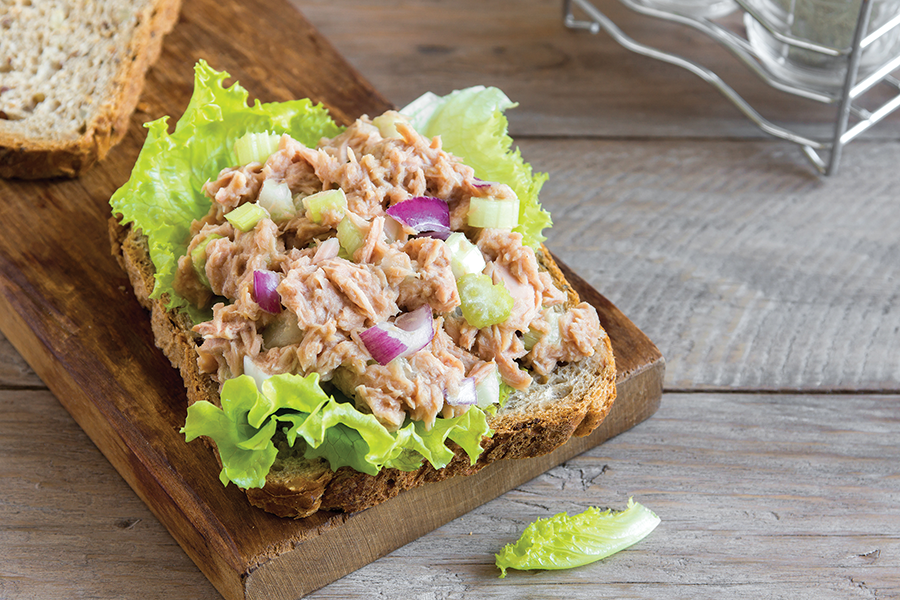 Stress and anxiety are two separate emotional states, though they share similar symptomology. Stress is triggered by environmental factors that may be short-term (e.g., a work or school deadline, an unexpected financial hardship, a fight with a friend or loved one) or long-term (e.g., being unable to find work, caring for a chronically ill loved one, extended financial problems). Anxiety, on the other hand, is defined by the American Psychological Association as “persistent, excessive worries that don’t go away even in the absence of a stressor.” Symptoms of both stress and anxiety include insomnia, difficulty concentrating, fatigue, muscle tension, and irritability, and both emotional states can have a negative impact on overall health, if left unchecked.1
Stress and anxiety are two separate emotional states, though they share similar symptomology. Stress is triggered by environmental factors that may be short-term (e.g., a work or school deadline, an unexpected financial hardship, a fight with a friend or loved one) or long-term (e.g., being unable to find work, caring for a chronically ill loved one, extended financial problems). Anxiety, on the other hand, is defined by the American Psychological Association as “persistent, excessive worries that don’t go away even in the absence of a stressor.” Symptoms of both stress and anxiety include insomnia, difficulty concentrating, fatigue, muscle tension, and irritability, and both emotional states can have a negative impact on overall health, if left unchecked.1
While it is important to note that chronic stress and more severe forms of anxiety will likely require therapeutic interventions, such as psychotherapy and/or medication, from a licensed healthcare provider, all levels of stress and anxiety may benefit from lifestyle modifications, including diet, exercise, and good sleep hygiene. In this article, we review some key nutrients that have demonstrated positive effects on stress and/or anxiety.
B Vitamins
In a systematic review and meta-analysis by Young et al,2 investigators evaluated randomized, controlled trials (RCTs) that assessed the effect B group vitamin supplementation had on mood in healthy and “at-risk” populations. Eighteen studies, with a total of 2,015 participants, were included, of which 12 studies were eligible for meta-analysis. The researchers reported that 11 of the 18 studies indicated B vitamin supplementation had a positive effect over placebo on overall mood or some facet of mood. Of the eight studies that included “at-risk” participants (i.e., participants with nutritional deficiency, elevated scores on a psychological mood assessment scale, symptoms of a mood disorder considered below diagnostic threshold, or vulnerability to mood disorders), five studies reported B vitamin supplementation was beneficial to mood—specifically, B vitamin supplementation was significantly beneficial to stress, but the benefit to depression did not reach significance and no effect on anxiety was observed. The authors of the systematic review and meta-analysis concluded that B vitamin supplementation has beneficial effects on overall mood and symptoms of stress—particularly in those who have poor nutritional status or are considered vulnerable to mood disorders—but did not appear to benefit depression or anxiety.2
B vitamins include thiamin (B1), riboflavin (B2), niacin (B3), pantothenic acid (B5), pyridoxine (B6), biotin (B7), folate/folic acid (B9), and pyanocobalamin (B12). B vitamins in food are easily destroyed by alcohol, cooking, or processing. Natural sources of B vitamins include whole grains, eggs, legumes, citrus fruits, avocados, meat/fish/poultry, and liver. Fortified breakfast cereals are also good sources of B vitamins.3
Magnesium
In a systematic review, researchers examined the available evidence for the efficacy of magnesium supplementation in the treatment of subjective symptoms of anxiety and stress.4 The investigators included studies evaluating magnesium alone or in combination with other ingredients. Eighteen studies met the inclusion criteria, 10 of which recruited male and female participants. Eight studies recruited female participants only—seven that examined the effects of magnesium on premenstrual syndrome (PMS) and one that examined the effects of magnesium in postpartum anxiety,. Magnesium doses across all studies ranged from 46.4 to 600mg, and magnesium lactate was the most common form of magnesium used in the studies, followed by magnesium oxide. Seven studies combined magnesium with vitamin B6, and two studies combined magnesium with extract of hawthorn. Eight studies recruited participants reporting mild-to-moderate subjective anxiety, seven studies recruited women reporting mild-to-moderate PMS symptoms, one study evaluated the effects of magnesium on postpartum anxiety, and two studies recruited participants with mild hypertension. Four out of eight studies in anxiety, four out of seven studies in PMS, and one out of two studies in hypertension samples reported positive effects of magnesium on subjective anxiety outcomes. Investigators reported that magnesium had no effect on postpartum anxiety. None of the studies included in the systematic review administered a validated measure of subjective stress as an outcome. The investigators concluded that available evidence suggests magnesium has a beneficial effect on subjective anxiety in vulnerable participants; however, they noted that the quality of available evidence is poor and that better-designed, controlled trials are needed to support these findings.4
Natural sources of magnesium include leafy greens, nuts, seeds, dry beans, whole grains, wheat germ, and wheat and oat bran.5
Vitamin C
In a small RCT by de Oliveira, investigators examined the effects of oral vitamin C supplements on anxiety in 42 adult students. The students were administered either 500mg of vitamin C a day or placebo for 14 days. Plasma concentrations of vitamin C, blood pressure, and heart rates were measured before the start of the study and one day after the study (Day 15). Baseline and post-intervention anxiety levels were measured using the Beck Anxiety Inventory (BDI). According to the authors, students in the vitamin C treatment group had reduced anxiety levels, as measured by BDI, and higher plasma vitamin C concentration compared to those administered the placebo. The authors also reported that mean heart rates were significantly different between vitamin C group and placebo control group, though they didn’t specify exactly what they meant by “significantly different.” The authors did not observe a difference in blood pressure between the two groups. The authors concluded that vitamin C and antioxidants may play important therapeutic roles in the prevention and treatment of anxiety, but larger controlled clinical studies are needed to support these findings.6
Natural sources of vitamin C include citrus fruits, such as orange, kiwi, lemon, grapefruit; bell peppers; strawberries; tomatoes; cruciferous vegetables, such as broccoli, Brussel sprouts, cabbage, and cauliflower; and white potatoes.7
Zinc
In a preliminary study by Russo,8 researchers sought to test the hypothesis that there is a relationship between copper and zinc concentration and improvements in anxiety. Thirty-two adults with anxiety, as measured by the Hamilton Rating Scale for Anxiety (Ham-A) and 16 age-, sex-, and size-matched healthy controls were recruited to participate in this study. Serum zinc, copper, copper-zinc couple, and antioxidant levels were collected at baseline and at the end of the study from all participants. Individuals with anxiety had significantly higher plasma levels of copper and lower plasma levels of zinc compared to controls. Twenty of the 38 patients with anxiety (chosen randomly) were given zinc and vitamin B6 therapy for eight weeks. Post-therapy, zinc levels normalized (increased to the normal range) and copper-zinc couple levels significantly decreased after zinc and B-6 therapy, but copper did not significantly decrease. Symptoms of anxiety (a scale of 1 to 5; 5 being the most symptomatic) of these same patients improved significantly post-therapy. The study investigators concluded that zinc therapy is effective in increasing zinc plasma levels and that zinc supplementation may play a role in improving symptoms of anxiety.8
Natural sources of zinc include meat, shellfish, legumes, seeds, and nuts.9
Bottom Line
For mild symptoms of stress, a diet comprising a wide variety of whole foods and lean meats, along with regular exercise and a good sleep routine, bolsters your body with the nutrients it needs to combat the negative effects stress can have on your health. Mild anxiety can benefit from these lifestyle modifications as well. However, for chronic stress or more severe symptoms of anxiety, seeking the help of a licensed healthcare professional, in addition to lifestyle modifications, may be necessary. Consult with your physician or a qualified dietitian/nutritionists to learn which, if any, supplements may be beneficial to your health.
Sources
1. American Psychological Association. What’s the difference between stress and anxiety? Last updated 14 Feb 2022. https://www.apa.org/topics/stress/anxiety-difference. Accessed 14 Mar 2022.
2. Young LM, Pipingas A, White DJ, et al. A systematic review and meta-analysis of B vitamin supplementation on depressive symptoms, anxiety, and stress: effects on healthy and ‘at-risk’ individuals. Nutrients. 2019;11:22–3.
3. Nourish by WebMD site. Foods high in B vitamins. Last reviewed 13 Dec 2020. https://www.webmd.com/diet/foods-high-in-b-vitamins#2
4. Boyle NB, Lawton C, Dye L. The effects of magnesium supplementation on subjective anxiety and stress—a systematic review. Nutrients. 2017;9: 429.
5. Cleveland Clinic site. Magnesium-rich foods. Last reviewed 24 Nov 2020. https://my.clevelandclinic.org/health/articles/15650-magnesium-rich-food#:~:text=In%20general%20rich%20sources%20of,310%2D320%20mg%20per%20day. Accessed 14 Mar 2020.
6. de Oliveira I, de Souza V, Motta V, Da-Silva S. Effects of oral vitamin C supplementation on anxiety in students: a double-blind, randomized, placebo-controlled trial. Pakistan J Biologic Sci. 2015;18(1):
11–18.
7. Harvard TH Chan School of Public Health site. The nutrition source: vitamin C. Updated Mar 2020. https://www.hsph.harvard.edu/nutritionsource/vitamin-c/. Accessed 14 Mar 2022.
8. Russo AJ. Decreased zinc and increased copper in individuals with anxiety. Nutrition Metabolic Insights. 2011;4:1–5
9. West H. The 10 best foods that are high in zinc. 19 Apr 2018. Healthline site. https://www.healthline.com/nutrition/best-foods-high-in-zinc. Accessed 14 Mar 2022.





